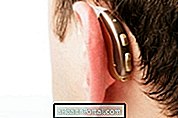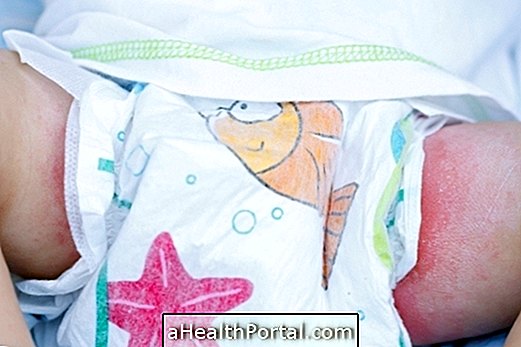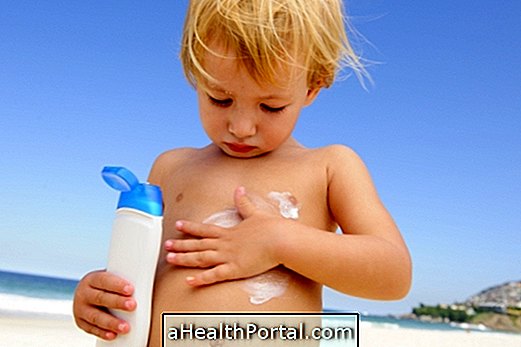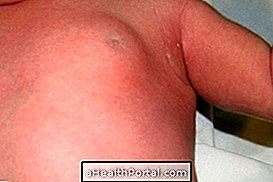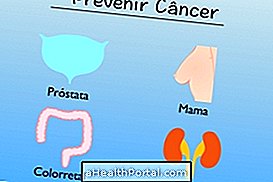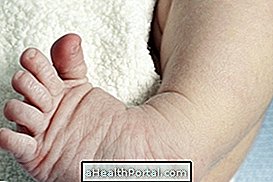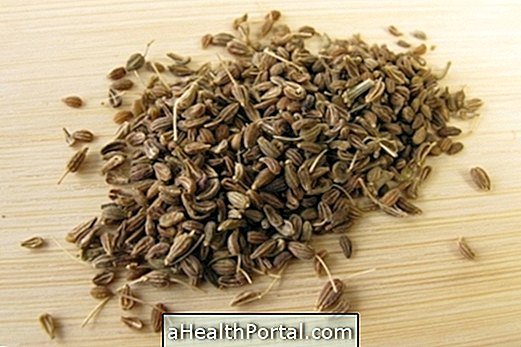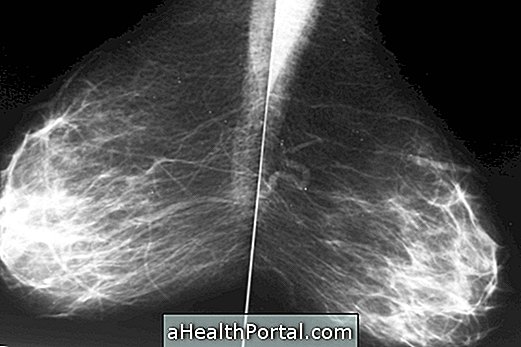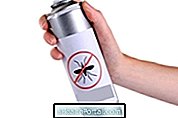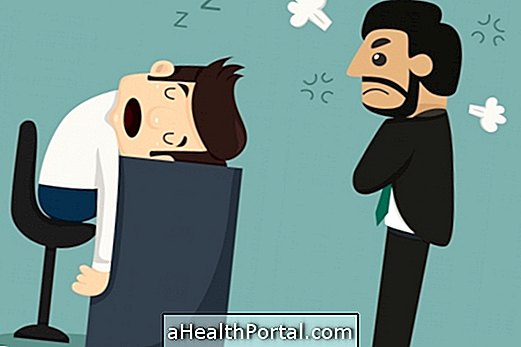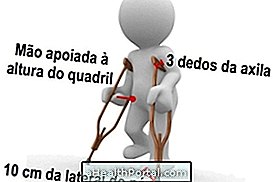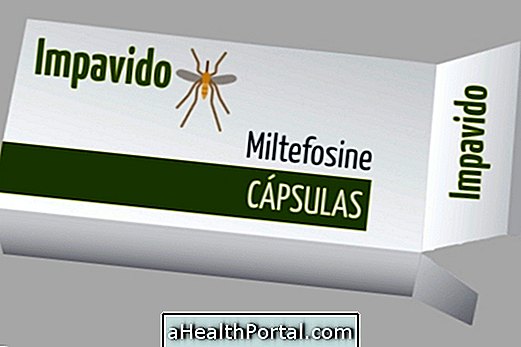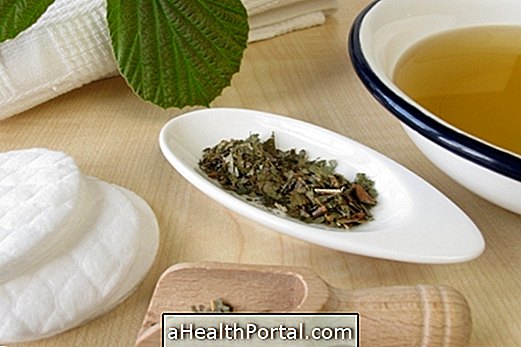Sleep apnea in a baby is when the child stops breathing momentarily while sleeping, thereby reducing the amount of oxygen in the blood and brain. It is most common in the first month of life and especially affects preterm or low birth weight infants.
Your cause can not always be identified, but in any case, whenever this happens the pediatrician should be advised so that tests can be performed that can identify the cause and start the appropriate treatment.
In the past, sleep apnea in a baby with no known cause was called a near-sudden death because it appears that the child is dying while sleeping, but although the old name suggests sleep apnea in the baby has no relation to death syndrome sudden and the baby who is not breathing momentarily does not have a greater risk of having a sudden death and this can calm the parents. Learn the causes and how to prevent sudden infant death.
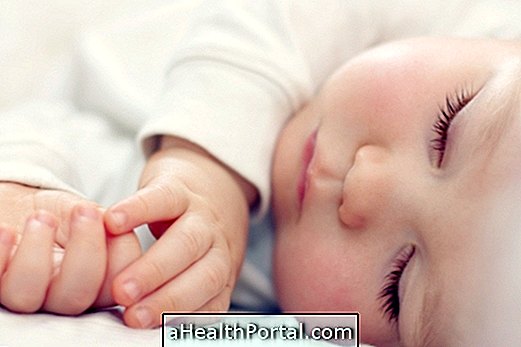
Symptoms of sleep apnea in baby
Symptoms of sleep apnea in baby, also known by the acronym ALTE, include:
- The baby stops breathing during sleep;
- The heart rate is greatly reduced;
- The tips of the fingers and the lips may turn purple;
- The baby can become very soft and apathetic.
Short breath stops usually do not cause any harm to the baby's health and can be considered normal. But when the child does not breathe for more than 20 seconds and if this is frequent should be investigated because it is a characteristic of the infant's apnea.
What to do when your baby stops breathing
If you suspect the baby is not breathing, check the signs: the chest does not rise and fall, there is no sound, it is not possible to feel the air coming out when placing the finger indicated below the baby's nostrils. Make sure your baby is the normal color and the heart is beating. If the baby is not really breathing you should:
- Call an ambulance by calling 192
- Try to wake him by picking him up and calling for him.
In this syndrome the baby should return to breathe alone, only with these stimuli because the breath stop is fast. However, if the baby takes time to return to breathing alone you can make a mouth-to-mouth breath.
How to do mouth-to-mouth breathing in the baby
Simply place your mouth, expelling the air that is only in your mouth into the mouth and nose at the same time. As the baby's face is small, his open mouth should be able to cover both the nose and the mouth of the baby. You do not have to inhale deeply to give too much air to the baby because his lungs are too small, so the air inside your mouth is enough.
Learn to do cardiac massage on the baby if the heart is not beating too.
How to Treat Sleep Apnea in a Baby
Treatment depends on what is causing this stopping of breathing but can be done with medicines like theophylline that stimulates breathing or surgery like the removal of the tonsils and adenoids, which usually improves and cures the apnea, increasing the quality of life of the child. But this is only indicated when apnea is caused due to the increase of these structures, which does not always happen.
Childless sleep apnea when untreated can bring numerous problems to the child, such as brain damage, developmental delay and pulmonary hypertension, for example. The change in growth can also happen and is due to the decrease in the production of growth hormone, because it is during sleep that it is produced and in this case, its production is decreased.
How to care for the baby with sleep apnea
After performing all the exams and can not identify a cause for stopping breathing during sleep, parents can be more rested because the baby is not life-threatening. But you must be aware of the baby's breathing while he is asleep and take all the necessary care to make everyone at home sleep peacefully.
Some important measures are to put the baby to sleep always in his crib, without pillow, stuffed animals, blankets. If it is cold, opt to dress the baby in warmer pajamas and use only a sheet to cover it, being careful to attach the entire side of the sheet under the mattress.
Put your baby to sleep always on your belly up or slightly on your side and never on your stomach. Try to rest and have a peaceful sleep because checking to see if your baby is breathing all the time can be very tiring.
What causes sleep apnea in the baby
The causes of sleep apnea in a baby are not always identified but it may be related to some situations such as asthma, bronchiolitis or pneumonia in the case of obstructive apnea. In addition to enlargement of the tonsils and adenoids, overweight, malformations of the skull and face or due to neuromuscular diseases.
Apnea can also be caused by gastroesophageal reflux, seizures, cardiac arrhythmias or a brain failure that is when the brain stops sending the stimulus to the body to breathe and the latter cause can not always be identified but the pediatrician arrives at this diagnosis when the baby has symptoms and no changes in the tests are found.
Required exams
The baby may have to be hospitalized so that doctors can observe in which situations he stops breathing and to perform some tests such as a blood count, to rule out anemia or infections, as well as serum bicarbonate, to rule out metabolic acidosis and other tests that the doctor can necessary.
